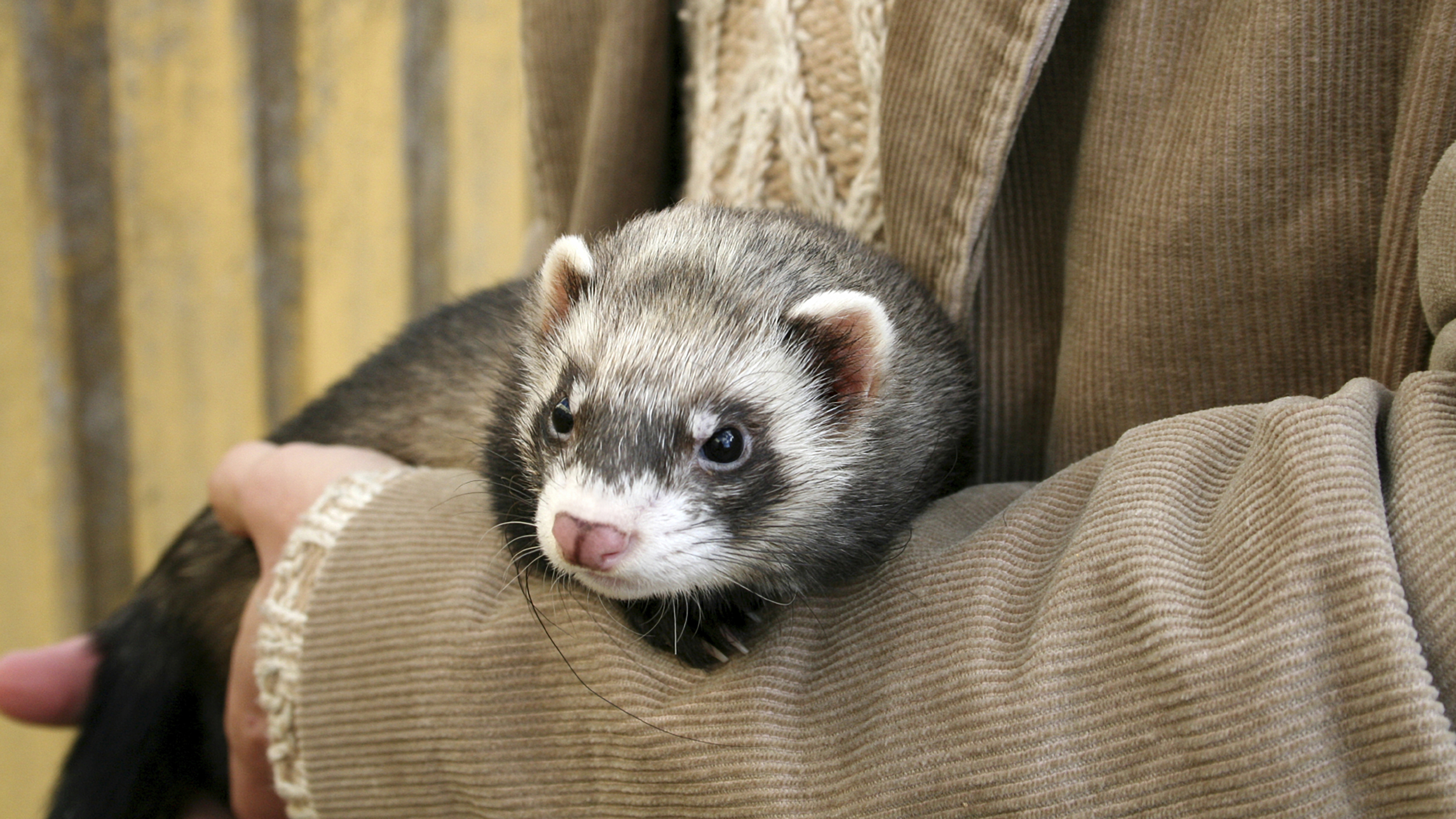
Giardia And Your Ferret
Giardia are a type of protozoa – a microscopic, single-celled parasite – which lives in the small intestines.
More about giardia and your ferret
Giardia is a tiny organism, called a protozoa, made of only one cell! Infection with giardia is quite rare in ferrets, but can occur. Although any ferret can be affected with giardia, it is more likely in young ferrets or ferrets who are densely housed.
Giardia reproduce in the intestines by producing special infectious cysts which are released into the environment in faeces. Ferrets who ingest these cysts are then infected themselves. Giardia can infect many animals as well as ferrets, including cats, dogs and humans. This means that ferrets who are in contact with other animals are much more at risk of giardia.
Giardia can be difficult to diagnose, as ferrets which are affected often only have giardia in their faeces intermittently and may show no signs of infection. This means that a test can be negative, even if giardia are actually present – repeated tests may be needed to track this little parasite down!
You can’t stop your ferret being exposed to cryptosporidium, but there are some top tips to reduce the risk of cryptosporidium:
- Keep your ferret's environment clean and routinely disinfected.
- Keep your ferret away from areas that might be contaminated by faeces from other infected animals.
- Avoid feeding uncooked meat, especially offal.
- Monitor, if you see your ferret has diarrhoea, get them in to see a vet. There are many things that can cause diarrhoea, and getting to the root of the problem will help you get the right treatment fast.
You can’t stop your ferret being exposed to giardia, but there are some top tips to reduce the risk of giardia:
- Keep your ferret's environment clean and routinely disinfected.
- Keep your ferret away from areas that might be contaminated by faeces from other infected animals.
- If you use them, use boarding facilities that you trust and are cleaned regularly densely populated areas are much more likely to harbour giardia.
- Monitor, if you see your ferret has diarrhoea, get them in to see a vet. There are many things that can cause diarrhoea, and getting to the root of the problem will help you get the right treatment fast.
If you think your ferret might have a giardia infection, the best thing to do is to get in touch with your vet.
They can do a full physical examination, and check your ferret over from nose to tail, especially as diarrhoea can have many causes! To diagnose giardia your vet may recommend faecal tests. These will look for the giardia themselves, which are invisible to the human eye. These tests are often part of finding out why a ferret has diarrhoea, and may also look for common bacteria and other parasites too. Faecal tests may have to be done over several days as giardia can be quite elusive! If your ferret does have giardia, your vet can prescribe suitable medication to treat the infection.
Ferret Advice
Read more of our expert ferret advice to keep your ferret happy and healthy.
